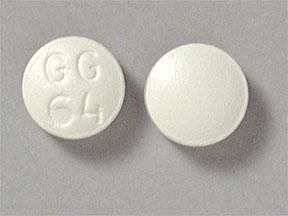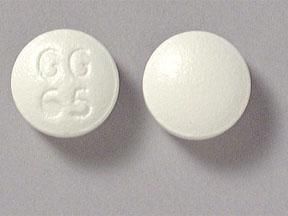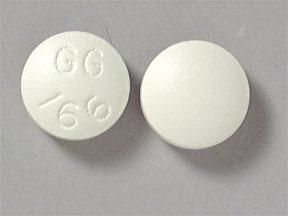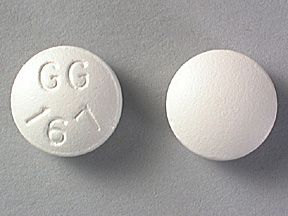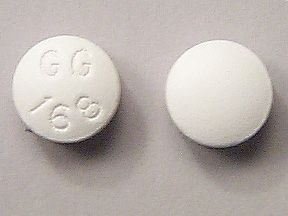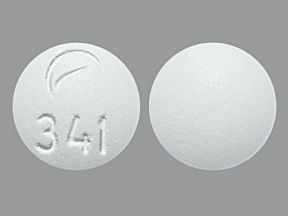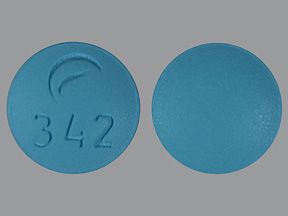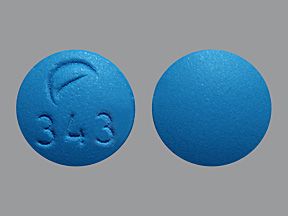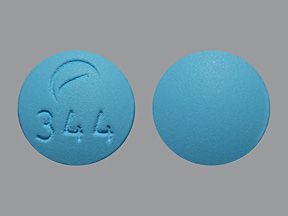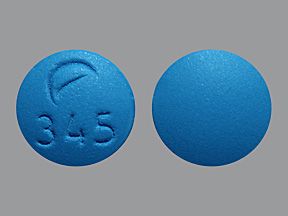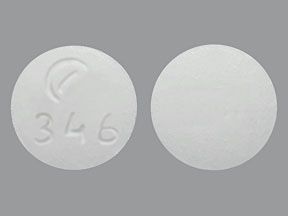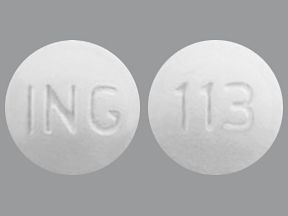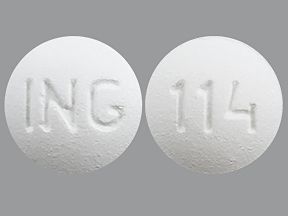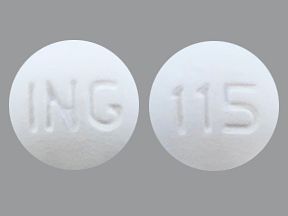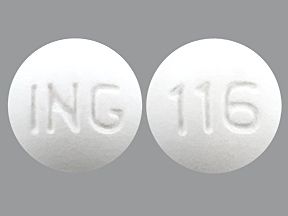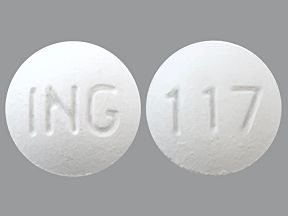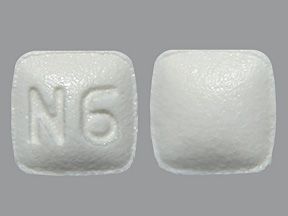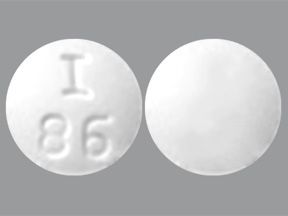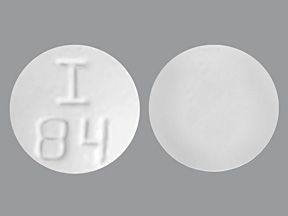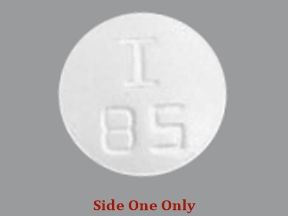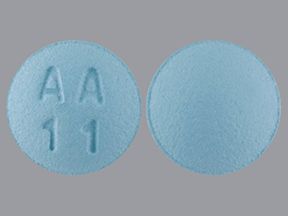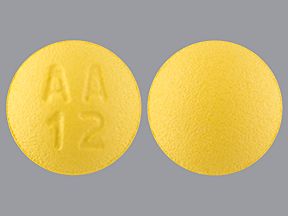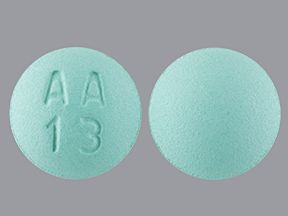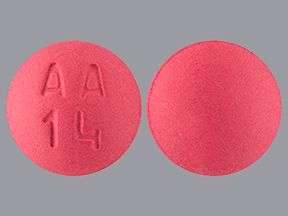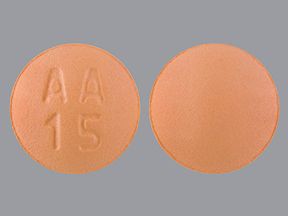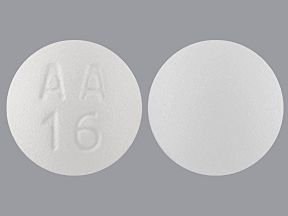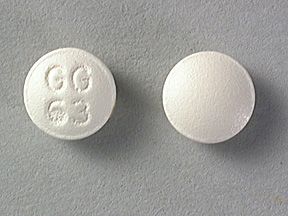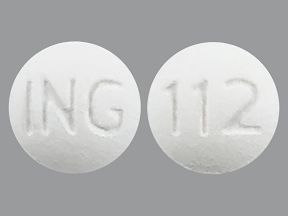Highlights for desipramine
- Desipramine oral tablet is available as a brand-name drug and a generic drug. Brand name: Norpramin.
- This drug comes only as a tablet you take by mouth.
- Desipramine is used to treat depression.
FDA warning: Suicidal thoughts and actions
- This drug has a black box warning. This is the most serious warning from the Food and Drug Administration (FDA). A black box warning alerts doctors and patients about drug effects that may be dangerous.
- Desipramine may increase suicidal thoughts or behaviors. This risk is higher within the first few months of treatment, or with changes in dosage. It’s also higher in children, teenagers, and young adults. Pay close attention to any unusual changes in your or your child’s mood, behaviors, thoughts, or feelings. If you notice any changes, call your doctor right away.
Other warnings
- Worsening depression warning: This drug may make your depression worse. This risk is higher during the first few months of treatment, or when your dosage changes. If you have any unusual changes in behavior, call your doctor. These changes can include thoughts of or attempts to commit suicide, panic attacks, trouble sleeping, or feeling anxious, agitated, or restless. They can also include feeling irritable, hostile, or aggressive, acting on dangerous impulses, or having extreme mood swings.
- Drowsiness and dizziness warning: This drug may cause drowsiness or dizziness. Don’t drive, use heavy machinery, or do any dangerous tasks until you know how this drug affects you.
- High blood pressure during surgery warning: Tell your doctor if you’re scheduled to have elective surgery. Desipramine should be stopped as soon as possible before elective surgery because it can cause high blood pressure. This can be dangerous during surgery.
Desipramine is a prescription drug. It comes as a tablet you take by mouth.
Desipramine is available as a brand-name drug called Norpramin. It’s also available as a generic drug. Generic drugs usually cost less than the brand-name version. In some cases, they may not be available in every strength or form as the brand-name drug.
Desipramine may be used as part of a combination therapy. This means you may need to take it with other medications.
Why it’s used
Desipramine is used to treat depression.
How it works
Time for medication to take effect
- Desipramine can start to work in 2–5 days. However, it may take 2–3 weeks before you see a big improvement in your depression symptoms.
Desipramine belongs to a class of drugs called tricyclic antidepressants. A class of drugs is a group of medications that work in a similar way. These drugs are often used to treat similar conditions.
It’s not known exactly how this drug works to help treat depression. It may block the reuptake of a chemical messenger called norepinephrine. This means it may keep your brain from reabsorbing this substance. This action raises the level of norepinephrine in your body, which helps improve your mood.
Desipramine oral tablet may cause drowsiness. You shouldn’t drive or use heavy machinery until you know how desipramine affects you. Drowsiness may mean your body isn’t responding well to this drug. Your doctor may need to decrease your dosage.
This drug can also cause other side effects.
More common side effects
The more common side effects of desipramine can include:
- drowsiness
- dizziness
- dry mouth
- blurry vision
- trouble urinating
- constipation
- nausea
- vomiting
- loss of appetite
- sexual problems, such as decreased libido (sexual desire), or erectile dysfunction (impotence)
- fast heart rate
- high blood pressure, or low blood pressure (when you stand after sitting or lying down)
If these effects are mild, they may go away within a few days or a couple of weeks. If they’re more severe or don’t go away, talk to your doctor or pharmacist.
Serious side effects
Call your doctor right away if you have serious side effects. Call 911 if your symptoms feel life-threatening or if you think you’re having a medical emergency. Serious side effects and their symptoms can include the following:
- Suicide risk and worsening depression. Symptoms can include:
- thoughts about suicide or dying
- attempts to commit suicide
- new or worsened depression
- new or worsened anxiety
- feeling very agitated or restless
- panic attacks
- trouble sleeping
- new or worsened irritability
- acting aggressive, angry, or violent
- acting on dangerous impulses
- mania (an extreme increase in activity and talking)
- other unusual changes in behavior or mood
- Eye problems. Symptoms can include:
- eye pain
- vision problems, such as blurry vision
- swelling or redness in or around the eye(s)
- Heart problems. Symptoms can include:
- pounding heartbeat
- irregular heart rhythm
- Heart attack. Symptoms can include:
- chest pain
- shortness of breath
- discomfort in your upper body
- Stroke. Symptoms can include:
- weakness in one part or side of your body
- slurred speech
- Seizures
- Serotonin syndrome. Symptoms can include:
- agitation, hallucinations (seeing things that aren’t real), coma, or other changes in mental status
- overactive reflexes (coordination problems or muscle twitching)
- tremors
- racing heartbeat
- high or low blood pressure
- sweating or fever
- nausea, vomiting, or diarrhea
- muscle rigidity (stiffness)
- Neuroleptic malignant syndrome. Symptoms can include:
- increased temperature or fever
- sweating
- muscle rigidity (stiffness)
- muscle spasms
- involuntary movements, such as in the face
- irregular or racing heartbeat
- increased blood pressure
- passing out
Disclaimer: Our goal is to provide you with the most relevant and current information. However, because drugs affect each person differently, we cannot guarantee that this information includes all possible side effects. This information is not a substitute for medical advice. Always discuss possible side effects with a healthcare provider who knows your medical history.
Desipramine oral tablet can interact with other medications, vitamins, or herbs you may be taking. An interaction is when a substance changes the way a drug works. This can be harmful or prevent the drug from working well.
To help avoid interactions, your doctor should manage all of your medications carefully. Be sure to tell your doctor about all medications, vitamins, or herbs you’re taking. To find out how this drug might interact with something else you’re taking, talk to your doctor or pharmacist.
Examples of drugs that can cause interactions with desipramine are listed below.
Drugs that should not be used with desipramine
Do not take these drugs with desipramine. When used with desipramine, these drugs can cause dangerous effects in the body. Examples of these drugs include:
- Monoamine oxidase inhibitors (MAOIs) such as isocarboxazid, phenelzine, or tranylcypromine.
- Using these drugs with desipramine raises your risk of serotonin syndrome. This serious condition can cause symptoms such as sweating, fever, tremors, hallucinations (seeing or hearing things that aren’t real), or even coma. You must wait 14 days between taking desipramine and taking an MAOI.
- Linezolid or intravenous methylene blue.
- Using these drugs with desipramine raises your risk of serotonin syndrome. This serious condition can cause symptoms such as sweating, fever, tremors, hallucinations (seeing or hearing things that aren’t real), or even coma.
Drugs that increase your risk of side effects
- Increased side effects from other drugs: Taking desipramine with certain medications raises your risk of side effects from those drugs. Examples of these drugs include:
- Drugs such as tranquilizers (including olanzapine or clozapine), sedatives/hypnotics (including phenobarbital or pentobarbital), or benzodiazepines (including chlordiazepoxide or diazepam).
- Your increased side effects can include sleepiness, dry mouth, blurry vision, constipation, or trouble urinating.
- Serotonergic drugs such as triptans (including sumatriptan or zolmitriptan), other tricyclic antidepressants (including amitriptyline or imipramine), fentanyl, lithium, tramadol, buspirone, or St. John’s wort.
- The risk of increased side effects is highest when the drugs are started or dosages are increased. Your increased side effects can include a serious condition called serotonin syndrome. Symptoms of serotonin syndrome can include sweating, fever, tremors, hallucinations (seeing or hearing things that aren’t real), or even coma.
- If this syndrome occurs, desipramine and the other drug should be stopped and symptoms of the syndrome should be treated.
- o Anticholinergic drugs such as oxybutynin, trihexyphenidyl, or scopolamine.
- Your increased side effects can include a fast heart rate, blurry vision, drowsiness, or confusion. Your doctor may need to adjust your dosage of desipramine.
- Sympathomimetic drugs such as albuterol, epinephrine, or decongestants (including pseudoephedrine or phenylephrine).
- Your increased side effects can include an increased risk of high blood pressure. Your doctor may monitor you more often and adjust your dosage of desipramine as needed.
- Increased side effects from desipramine: Taking desipramine with certain medications raises your risk of side effects from desipramine. This is because the amount of desipramine in your body may be increased. Examples of these drugs include:
- Cimetidine.
- Your increased side effects can include drowsiness, high blood pressure, constipation, and sexual problems, such as decreased sexual desire, or erectile dysfunction (impotence). Your doctor may lower your dosage of desipramine.
- o Other antidepressants such as citalopram, duloxetine, escitalopram, fluoxetine, paroxetine, or sertraline.
- Your increased side effects can include a serious condition called serotonin syndrome. Symptoms of this condition include sweating, fever, tremors, hallucinations (seeing or hearing things that aren’t real), or even coma.
- Anti-arrhythmic drugs such as flecainide, propafenone, or quinidine.
- Your increased side effects can include a higher risk of QT interval prolongation. This can be a sign of heart rhythm problems. Symptoms can include an irregular heartbeat, fainting, or seizures.
- Antipsychotics such as chlorpromazine, fluphenazine, or thioridazine.
- Your increased side effects can include drowsiness or an irregular heartbeat.
Disclaimer: Our goal is to provide you with the most relevant and current information. However, because drugs interact differently in each person, we cannot guarantee that this information includes all possible interactions. This information is not a substitute for medical advice. Always speak with your healthcare provider about possible interactions with all prescription drugs, vitamins, herbs and supplements, and over-the-counter drugs that you are taking.
This drug comes with several warnings.
Allergy warning
Desipramine can cause allergic reactions. Symptoms can include:
- skin rash
- itching
- petechiae (tiny, purplish-red spots on the skin)
- trouble breathing
- swelling of your face, throat, or tongue
If you develop these symptoms, call 911 or go to the nearest emergency room.
Don’t take this drug again if you’ve ever had an allergic reaction to it. Taking it again could be fatal (cause death).
Alcohol interaction warning
The use of drinks that contain alcohol can decrease the amount of desipramine in your body. This means it won’t work as well to treat your depression. Alcohol may also increase your risk of drowsiness, suicidal thoughts, or taking too much desipramine.
If you drink alcohol, talk with your doctor about whether this drug is safe for you.
Warnings for people with certain health conditions
For people with a history of mania or bipolar disorder: Taking this drug alone may trigger a mixed or manic episode. Talk with your doctor about whether this drug is safe for you.
For people with seizures: This drug raises your risk of seizures. Talk with your doctor about whether this drug is safe for you.
For people with heart problems: Taking this drug raises your risk of a dangerously fast heart rate, heart attack, stroke, or other heart problems. Tell your doctor if you have any heart problems before starting this drug. Do not take this drug if you’ve recently had a heart attack. Your doctor will decide if and when you should start taking this drug again.
For people with hyperthyroidism (high thyroid levels): This drug raises your risk of arrhythmias (irregular heart rhythms). Talk with your doctor about whether this drug is safe for you.
For people with eye problems such as closed-angle glaucoma: This drug can worsen your condition. Talk with your doctor about whether this drug is safe for you.
For people with problems urinating: This drug can worsen your condition. Talk with your doctor about whether this drug is safe for you.
For people with kidney problems: If you have kidney problems or a history of kidney disease, you may not be able to clear this drug from your body well. This may increase the levels of this drug in your body and cause more side effects. Talk with your doctor about whether this drug is safe for you.
For people with liver problems: If you have liver problems or a history of liver disease, you may not be able to process this drug as well. This may increase the levels of this drug in your body and cause more side effects. Talk with your doctor about whether this drug is safe for you.
Warnings for other groups
For pregnant women: The Food and Drug Administration (FDA) hasn’t assigned a pregnancy category to desipramine. It’s not yet known if desipramine is safe and effective for use in pregnant women.
Tell your doctor if you’re pregnant or plan to become pregnant. Desipramine should be used during pregnancy only if the potential benefit justifies any potential risk.
For women who are breastfeeding: It has not been established that desipramine is safe to use during breastfeeding. Talk to your doctor if you breastfeed your child. You may need to decide whether to stop breastfeeding or stop taking this medication.
For seniors: The kidneys of older adults may not work as well as they used to. This can cause your body to remove desipramine more slowly. As a result, a higher amount of this drug stays in your body for a longer time. This raises your risk of side effects. Desipramine may also increase your risk of falls or confusion.
For children: It’s not known if this drug is safe or effective for children. Its use isn’t recommended in people ages 18 years and younger. This drug may cause suicidal thoughts and behaviors in children, adolescents, and young adults during the first few months of use.
All possible dosages and drug forms may not be included here. Your dosage, drug form, and how often you take the drug will depend on:
- your age
- the condition being treated
- how severe your condition is
- other medical conditions you have
- how you react to the first dose
Dosage for depression
Generic: Desipramine
- Form: oral tablet
- Strengths: 10 mg, 25 mg, 50 mg, 75 mg, 100 mg, 150 mg
Brand: Norpramin
- Form: oral tablet
- Strengths: 10 mg, 25 mg, 50 mg, 75 mg, 100 mg, 150 mg
Adult dosage (ages 18 to 64 years)
- Typical starting dosage: Your doctor may start you on a lower dosage and increase it as needed. Your dosage may be given in divided doses or as a single dose.
- Usual dosage: 100–200 mg per day in divided doses or as a single dose.
- Maintenance therapy: After your depression improves, if you require long-term treatment, the lowest effective dosage should be used. Once you get to your maintenance dosage, the total daily dose can be taken once daily.
- Maximum dosage: 300 mg per day. If you require doses as high as this, your desipramine should be started in the hospital. This will allow your doctor to monitor you closely each day and check your heart rate and rhythm.
Child dosage (ages 13 to 17 years)
- Typical dosage: 25–100 mg per day in divided doses or as a single dose.
- Maintenance therapy: After your child’s depression improves, if they require long-term treatment, the lowest effective dosage should be used. Once your child gets to the maintenance dosage, the total daily dose can be taken once daily.
- Maximum dosage: Your child’s doctor may slowly increase the dosage to 100 mg per day. In more severe disease, your child’s doctor may further increase the dose to 150 mg per day. Doses above 150 mg per day are not recommended.
- Note: This drug can cause suicidal thoughts in adolescents (see “FDA warning: Suicidal thoughts and actions” above). This risk must be considered against the possible benefit of this drug for this age group.
Child dosage (ages 0 to 12 years)
Desipramine isn’t recommended for use in children younger than 13 years.
Senior dosage (ages 65 years and older)
- Typical dosage: 25–100 mg per day in divided doses or as a single dose.
- Maintenance therapy: After your depression improves, if you require long-term treatment, the lowest effective dosage should be used. Once you get to the maintenance dosage, the total daily dose can be taken once daily.
- Maximum dosage: Your doctor may slowly increase your dosage to 100 mg per day. In more severe disease, your doctor may further increase the dose to 150 mg per day. Doses above 150 mg per day are not recommended.
Disclaimer: Our goal is to provide you with the most relevant and current information. However, because drugs affect each person differently, we cannot guarantee that this list includes all possible dosages. This information is not a substitute for medical advice. Always speak with your doctor or pharmacist about dosages that are right for you.
Desipramine is used for long-term treatment. It comes with serious risks if you don’t take it as prescribed.
If you stop taking the drug suddenly or don’t take it at all: Don’t stop taking desipramine suddenly. Stopping this drug suddenly can cause withdrawal symptoms. These can include nausea, headache, or malaise (feeling uncomfortable or uneasy).
If you don’t take this drug at all, your symptoms of depression may not improve.
If you miss doses or don’t take the drug on schedule: Your medication may not work as well or may stop working completely. For this drug to work well, a certain amount needs to be in your body at all times.
If you take too much: You could have dangerous levels of the drug in your body. Symptoms of an overdose of this drug can appear quickly and can include:
- changes in heart rhythm and rate
- dangerously low blood pressure
- dilated pupils (widening of the dark centers of the eyes)
- feeling very agitated
- overactive reflexes (coordination problems or muscle twitching)
- rigid muscles
- vomiting
- low body temperature or high fevers
- lowered breathing rate
- drowsiness
- fainting
- confusion
- trouble concentrating
- seizures
- visual hallucinations (seeing things that aren’t real)
- coma
- death
If you think you’ve taken too much of this drug, call your doctor or local poison control center. If your symptoms are severe, call 911 or go to the nearest emergency room right away.
What to do if you miss a dose: Take your dose as soon as you remember. But if you remember just a few hours before your next scheduled dose, take only one dose. Never try to catch up by taking two doses at once. This could result in dangerous side effects.
How to tell if the drug is working: Your depression symptoms should decrease and your mood should improve. Desipramine can start to work in 2–5 days, but it may take 2–3 weeks before you see a big improvement in your symptoms.
Keep these considerations in mind if your doctor prescribes desipramine for you.
General
- You can take desipramine with or without food.
- Take this drug at the time(s) recommended by your doctor.
- You can cut or crush the tablet.
Storage
- Store desipramine at room temperature between 59°F and 86°F (15°C and 30°C).
- Don’t store this medication in moist or damp areas, such as bathrooms.
Refills
A prescription for this medication is refillable. You should not need a new prescription for this medication to be refilled. Your doctor will write the number of refills authorized on your prescription.
Travel
When traveling with your medication:
- Always carry your medication with you. When flying, never put it into a checked bag. Keep it in your carry-on bag.
- Don’t worry about airport X-ray machines. They can’t harm your medication.
- You may need to show airport staff the pharmacy label for your medication. Always carry the original prescription-labeled container with you.
- Don’t put this medication in your car’s glove compartment or leave it in the car. Be sure to avoid doing this when the weather is very hot or very cold.
Clinical monitoring
You and your doctor should monitor certain health issues. This can help make sure you stay safe while you take this drug. These issues include:
- Mental health and behavioral problems: You and your doctor should monitor your moods, behavior, thoughts, and feelings. You should also monitor your symptoms of depression and any other mental illnesses you may have. This drug can cause new mental health and behavior problems, or make existing problems worse.
- Kidney function: You may have blood tests to check how well your kidneys are working. If your kidneys aren’t working well, your doctor may lower your dosage of this drug. Your doctor will also check to see if you’re not urinating enough, which can be a side effect of this drug.
- Eye health: You may have an eye exam to check whether you’re at risk of an acute glaucoma attack. Your risk can be increased based on the anatomy of your eyes. Your doctor may check your pupils to see if they are dilated (widened), which can be a side effect of this drug. The pressure in your eyes may also be checked.
- Blood pressure: Your doctor may check your blood pressure. This is because desipramine can increase or decrease your blood pressure.
- Heart function: You may have an electrocardiogram. This will check whether desipramine is causing any changes in how your heart is working. If it is, your dosage may need to be changed.
- Liver function: You may have blood tests to check how well your liver is working. Desipramine may increase your liver enzymes. This can be a sign of liver damage.
- Pancreatic enzyme levels: You may have blood tests to check the level of your pancreatic enzymes. Desipramine may increase your pancreatic enzyme levels.
- Blood cell count: You may have blood tests to check how well your bone marrow is working. Your bone marrow makes white blood cells that help fight infection, as well as platelets and red blood cells. In some people, desipramine can change the levels of different blood cells.
- Thyroid function: Blood tests can check how well your thyroid is working. Desipramine can cause heart problems, including changes in heart rhythm. This can worsen or mimic effects that can be caused by increased function of your thyroid gland.
- Weight: Desipramine can cause you to gain or lose weight.
- Body temperature: Desipramine can cause increased body temperature. This can be a sign of a severe side effect called serotonin syndrome.
Sun sensitivity
Desipramine can make your skin more sensitive to the sun. This increases your risk of sunburn. Avoid the sun if you can. If you can’t, be sure to wear protective clothing and apply sunscreen.
Availability
Not every pharmacy stocks this drug. When filling your prescription, be sure to call ahead to make sure your pharmacy carries it.
Hidden costs
You may need to have certain blood tests or exams to check your health while you take desipramine. The cost of these tests or exams will depend on your insurance coverage.
There are other drugs available to treat your condition. Some may be better suited for you than others. Talk to your doctor about other drug options that may work for you.
Disclaimer: Healthline has made every effort to make certain that all information is factually correct, comprehensive, and up-to-date. However, this article should not be used as a substitute for the knowledge and expertise of a licensed healthcare professional. You should always consult your doctor or other healthcare professional before taking any medication. The drug information contained herein is subject to change and is not intended to cover all possible uses, directions, precautions, warnings, drug interactions, allergic reactions, or adverse effects. The absence of warnings or other information for a given drug does not indicate that the drug or drug combination is safe, effective, or appropriate for all patients or all specific uses.

